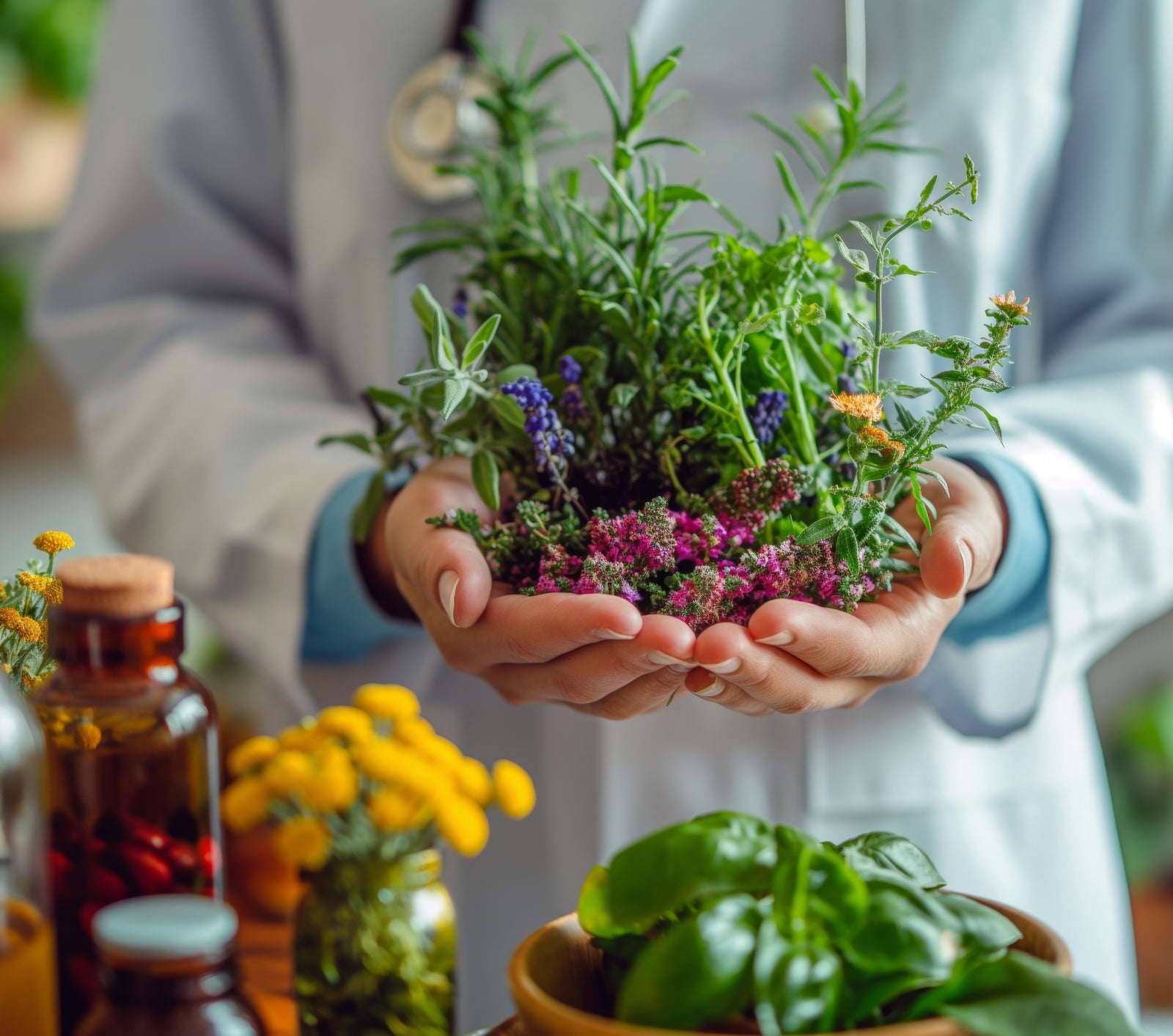Best Herbs for Menopause

Menopause is an unpleasant condition that manifests itself through insomnia, decreased libido, fatigue, joint pain, mood swings and hot flashes. The level of estrogen in the body drops, which, among other things, weakens the bone structure (often causing osteoporosis). Hormone replacement therapy (HRT), despite its effectiveness, is not always desirable due to the risk of side effects. That is why many women look for alternative solutions, such as natural medicine.
Herbs for menopause are a natural alternative to hormone replacement therapy. Although they do not work as quickly as synthetic hormonal drugs, regular use over several months can bring very good results. Natural herbal extracts, which are rich in phytoestrogens, have long been used to alleviate the symptoms of menopause. These compounds have a structure similar to natural estrogens. Herbs help many women feel better during menopause.
St. John's wort
In mild depression and mood swings, St. John's wort (Hypericum perforatum) may be a recommended ingredient during menopause. St. John's wort is widely believed to boost mood and provide some relief from depression. The herb may also help with menopause-related symptoms and premenstrual syndrome (PMS)
Siberian ginseng
Studies show that herbal treatment of menopause should also include the use of plants with adaptogenic and mood-improving effects. Ginseng is one of these ingredients. It is also a plant from the category of herbs for libido.
Mugwort
Mugwort, also known as Artemisia vulgaris, has been used in traditional medicine around the world to treat menopausal symptoms. It may help relieve hot flashes, anxiety, and insomnia associated with pre-menopause and menopause.
Motherwort
Motherwort helps combat symptoms of menopause, such as hot flashes, water retention, and mood swings. It also strengthens the heart. It is a strong antioxidant, and is useful for hyperthyroidism. The herb contains the alkaloid leonurine, which stimulates uterine activity.
Lady's mantle
Lady's mantle is a herb recommended for menopause, it can help with symptoms such as hot flashes, night sweats, mood swings, and anxiety. It can also help with "estrogen dominance," a condition that can occur during and after menopause when women produce more estrogen and less progesterone. Lady's mantle can also help with menstrual problems.
Evening primrose
Thanks to its high content of omega acids, evening primrose oil has a beneficial effect on the human circulatory system, by lowering blood pressure and cholesterol levels. It also restores hormonal balance, thus relieving the symptoms of menopause and premenstrual tension, and supporting fertility. Evening primrose oil has been shown to help relieve hot flashes in menopausal women, including their severity, frequency, and duration.
Chasteberry
Chasteberry, also known as Vitex agnus-castus, may help with menopausal symptoms such as hot flashes, night sweats, and mood. It may also help with PMS and fertility. Chasteberry contains phytoestrogens, which are natural substances that mimic estrogen, a hormone that the ovaries stop producing after menopause.






